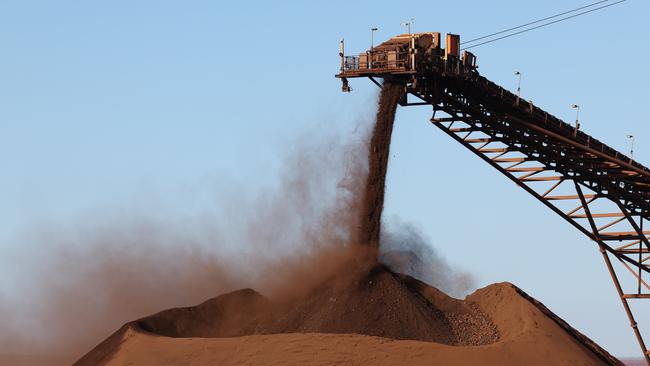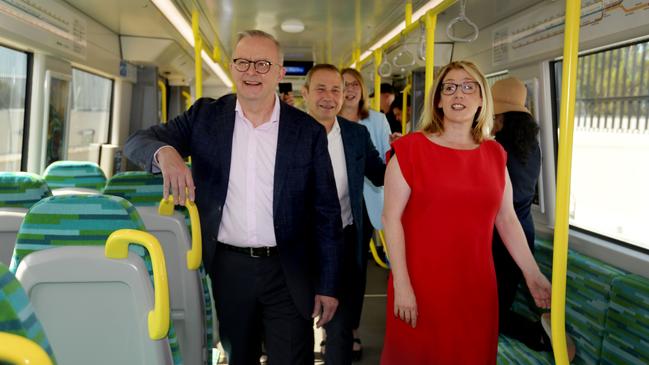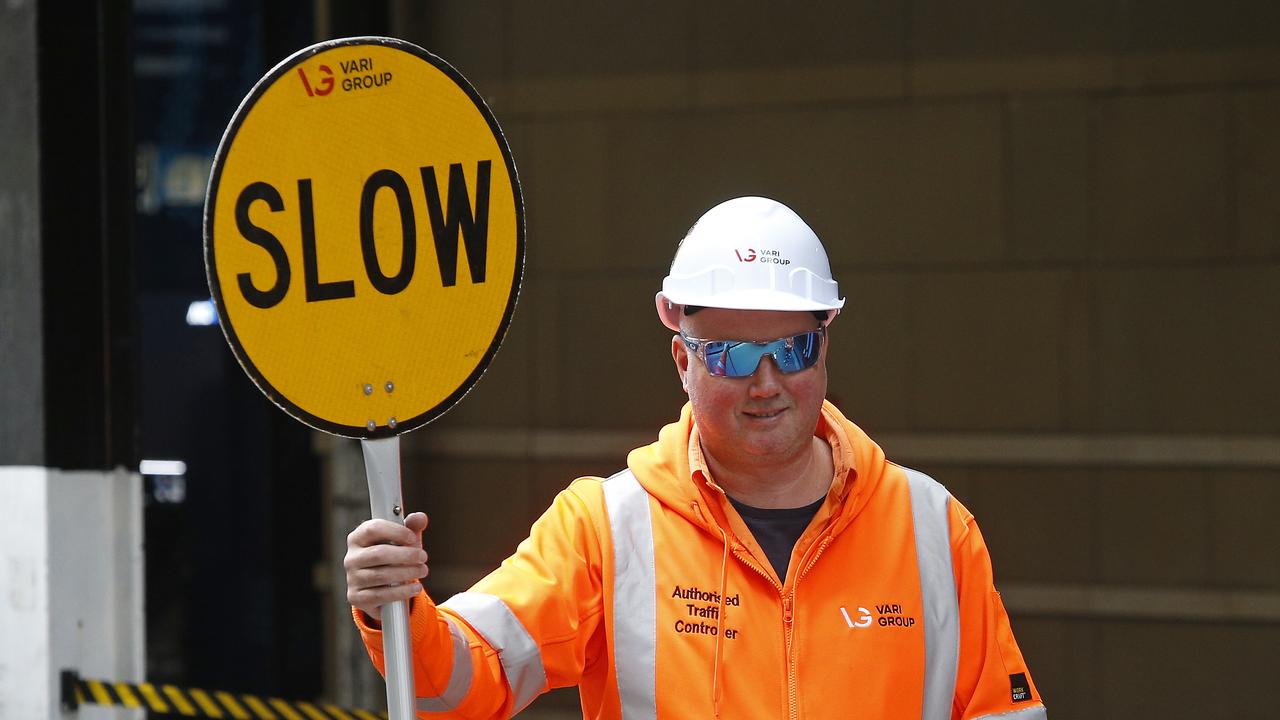No toll roads, no high power bills, no worries: WA Treasurer
WA’s government says it can afford to invest in roads, ports and infrastructure even as it maintained a conservative position on iron ore price projections that boost its bottom line.

WA’s Labor government says that unlike rival states, it can afford to invest in roads, ports, energy transmission and other taxpayer-owned infrastructure so that residents are not hit with excessive energy bills and user-pays charges such as road tolls.
WA Treasurer Rita Saffioti boasted of the state’s economic strength and defended big spending in comparison to states she said had sold off infrastructure.
Ms Saffioti was speaking after WA’s mid-year economic review forecast the state’s economy would continue a trend of growing at more than double the rate of the national economy.
She said the government would maintain an ultra-conservative to iron ore price forecasts after its budget bottom line received a $1.7bn boost from underestimating premiums for the steelmaking ingredient.
The iron ore windfall was revealed as WA forecast an operating surplus of $3.1bn for 2024-25, up from the previous forecast of $2.6bn forecast.
WA also continues to benefit from a floor on its share of GST – now set at 75c on the dollar – that has been attacked by other states but is seen as crucial to the electoral fortunes of both Labor and the Liberal parties going into state and federal elections in the next few months.
Ms Saffioti defended not doing more to reduce WA’s $32.5bn debt pile or help with cost-of-living pressures, saying infrastructure was required to foster growth across the vast state amid a multibillion-dollar spending spree that includes Labor’s signature MetroNet suburban rail project and a long-term plan to replace Fremantle port.

“What we’re seeing, in particular on the energy front, is a massive roll out of $14bn of investment,” she said.
“And if we don’t have that, then it impacts our ability to grow jobs and opportunities. That’s probably a difference between us and the other states, where the other states don’t own a lot of their energy and port assets.
“As a government, we own basically all the port assets. We own all the roads, no toll roads. We own all the energy, all the water infrastructure. It creates a massive challenge for us to deliver the economic infrastructure that in other states will be funded by user levy.
“They’ve sold off everything, so that’s why they have massive increases in their port charges and energy charges. We don’t do that. We keep those prices competitive and low.”
WA Liberal leader Libby Mettam said Labor had recorded $24bn in surpluses since coming to power in 2017 thanks to iron ore and the GST deal agreed by the Morrison government, but in that time demand for support services had skyrocketed.
“This was an opportunity to provide meaningful, targeted and systematic cost-of-living relief for families, but WA Labor has decided to fund their pet projects instead,” she said.
The WA economy grew by 5.7 per cent in 2023-24 and is now expected to grow at 3.5 per cent in 2024-25, up from the 3.25 per cent forecast when the state budget was handed down in May.
WA lifted its iron ore price assumption to $US95 a tonne inclusive of transport costs. The previous forecast was based on the iron ore price falling to $US71 a tonne amid concerns about the strength of the Chinese economy and its real estate market.
WA reaps an extra $93m in royalties for every $1 the iron ore price remains above the state’s price forecasts.
The iron ore bonus was partly offset by a $673m plunge in lithium royalty forecast amid a rout in the sector that has led to mine closures in WA.
The gold royalty forecast increased by $608m on the back of record high prices.
The review said the iron ore market was likely to remain oversupplied in 2025 and pointed to Fortescue and Mineral Resources ramping up production from projects in the Pilbara.
“China’s domestic steel consumption remains weak, impacted by a sustained three-year downturn in the country’s property market, the single largest consumer of steel,” Treasury officials said.
WA is the only state with a triple-A credit rating from both S&P Global and Moody’s, and has the lowest debt burden in the nation at 6.2 per cent of gross state product.
Originally published as No toll roads, no high power bills, no worries: WA Treasurer



